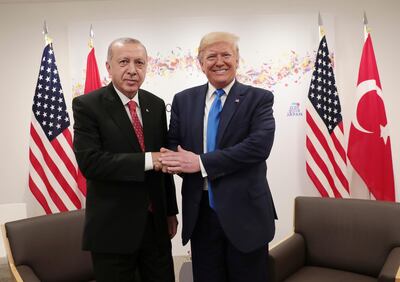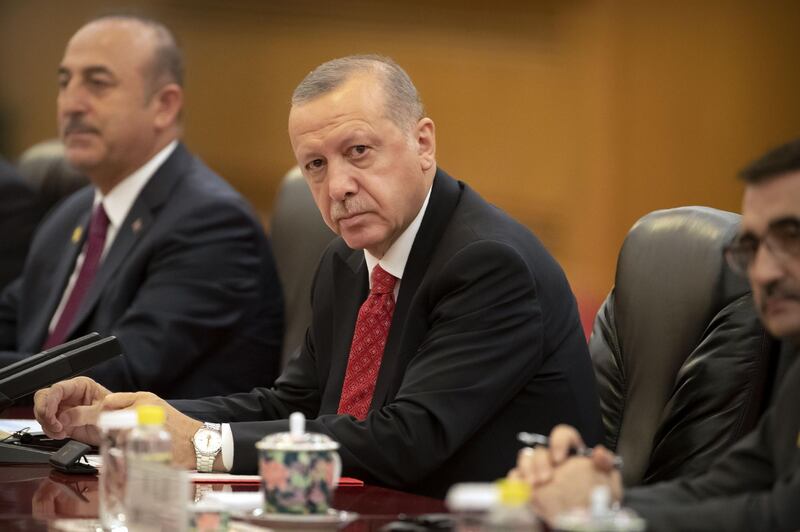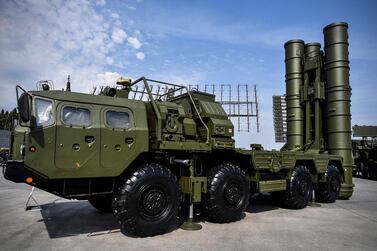The US State Department warned Turkey again on Wednesday of “very real and negative consequences” as Ankara prepared for the first delivery of the Russian S-400 missile defence system.
The delivery would lead to action by the US Congress and possibly the Trump administration.
With the first delivery due in days, the US is increasing measures it would take to punish its fellow Nato member.
"The United States has consistently and clearly stated that Turkey will face very real and negative consequences if it proceeds with its S-400 acquisition," a State Department spokeswoman told The National on Wednesday.
She said they would include suspension of participation in the F-35 fighter jet programme and sanctions.
"The Russian S-400 air and missile defence system is incompatible with the F-35 programme," Air Force Lt Col Mike Andrews told Reuters.
"Turkey will not be permitted to have both systems. Nothing has changed.”
Less than a week ago, US President Donald Trump struck a conciliatory tone in his meeting with Turkish leader Recep Tayyip Erdogan at the G20 Summit in Japan.

Mr Trump, who called Mr Erdogan a friend, said on Saturday that his predecessor Barack Obama was to blame for Ankara acquiring the Russian missiles, after refusing to sell Turkey the US Patriot system.
"When he bought the other ones, the S-200s or 400s, he wanted to do this but he wasn’t allowed by the Obama administration to buy them until after he made a deal to buy other missiles,” Mr Trump said.
“You can’t treat people that way, like the Obama administration did.”
But the US administration went into damage control after those remarks, asserting that Turkey would be punished if and when the S-400 system was set up.
In the past few weeks, the US government suspended training for Turkish pilots on the F-35s and ordered Ankara to be removed from the programme by July 31 if the S-400 were delivered.
“If Turkey procures the S-400, our two countries must develop a plan to discontinue Turkey's participation in the F-35 programme,” former acting defence secretary Patrick Shanahan wrote to Turkey's Defence Minister, Hulusi Akar.
Mr Shanahan's successor, Mark Esper, repeated the warning after a meeting with Mr Akar last week in Brussels.
A Senate bill under consideration would block F-35 deliveries to Turkey and remove it from helping to build the fighters over the Russian purchase.
The US House of Pepresentatives is considering a similar bill, called “Protecting Nato Skies Act of 2019.”
Aaron Stein, director of the Middle East programme at the Foreign Policy Research Institute, saw a contradiction between Mr Trump’s statements and Congress.
"Mr Trump may try and stall sanctions implementation by ignoring Congress, or move to waive them, or try to suspend them, or simply implement them," Mr Stein told The National.
“We all have no idea because this White House is what it is.”
But with large support in Congress behind sanctions and a determination by the State Department and Pentagon to implement them, Mr Trump may be faced with more than the two thirds of votes needed to override his veto.
One encouraging aspect for a breakthrough between the US and Turkey is the Congress confirmation of David Satterfield as the new ambassador to Turkey, a position that has been vacant since 2017.
A skilled negotiator, Mr Satterfield was confirmed last Friday and is expected to leave for Turkey in the next two weeks.







